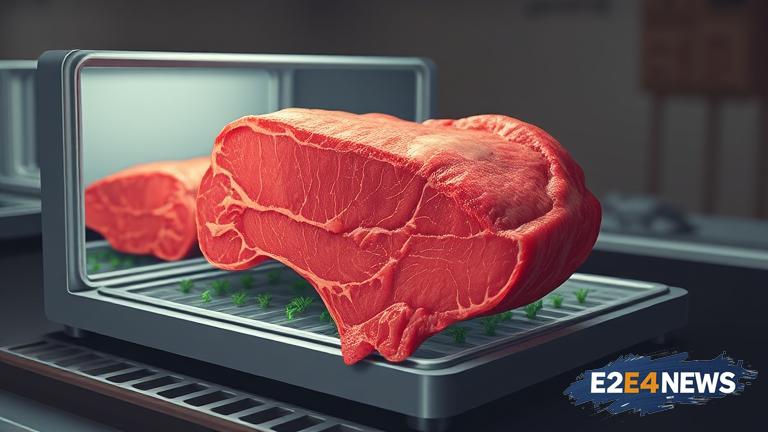In a surprising move, Texas lawmakers have banned the sale of lab-grown meat, despite only one restaurant in the state offering it on their menu. The decision has sparked controversy and debate about the future of food production and the role of government in regulating the industry. Lab-grown meat, also known as clean meat, is created by taking cells from animals and growing them in a controlled environment, eliminating the need for animal slaughter and reducing the environmental impact of traditional livestock farming. Proponents of lab-grown meat argue that it is a more sustainable and humane alternative to traditional meat production. However, lawmakers in Texas have cited concerns about the safety and labeling of lab-grown meat, as well as the potential impact on the state’s livestock industry. The ban has been met with criticism from advocates of lab-grown meat, who argue that it is a step backwards for the state and will stifle innovation in the industry. The single restaurant in Texas that sells lab-grown meat, which is located in the city of Austin, has expressed disappointment and frustration with the decision. The restaurant’s owner has stated that the ban will not only harm their business but also limit consumer choice and hinder the development of a more sustainable food system. The ban on lab-grown meat in Texas is not the first time that the state has taken a conservative approach to food regulation. In recent years, Texas has also banned the sale of vegan products that are labeled as ‘meat’ or ‘dairy’, citing concerns about consumer confusion. The lab-grown meat industry has been growing rapidly in recent years, with several companies investing heavily in research and development. However, the industry still faces significant regulatory hurdles, including the need for clear labeling and safety standards. Despite these challenges, many experts believe that lab-grown meat has the potential to revolutionize the way we produce and consume meat, and could play a key role in reducing greenhouse gas emissions and promoting sustainable agriculture. The ban on lab-grown meat in Texas is likely to have significant implications for the industry, and could set a precedent for other states to follow. As the debate over lab-grown meat continues to unfold, it is clear that there are deeply divided opinions on the issue. While some see lab-grown meat as a game-changer for the food industry, others are more skeptical and believe that it poses significant risks to human health and the environment. Ultimately, the decision to ban lab-grown meat in Texas will likely be seen as a setback for the industry, and will only serve to fuel the ongoing debate about the future of food production. The use of technology to produce meat is not new, but the concept of lab-grown meat is still in its infancy. As the industry continues to evolve, it is likely that we will see more states and countries grappling with the regulatory implications of this new technology. For now, the ban on lab-grown meat in Texas serves as a reminder of the complex and often contentious nature of food regulation, and the need for ongoing dialogue and debate about the future of the industry. The lab-grown meat industry is not without its challenges, and there are many questions still to be answered about the safety, efficacy, and environmental impact of this technology. However, for many advocates of lab-grown meat, the benefits far outweigh the risks, and they believe that it has the potential to play a key role in creating a more sustainable food system. As the world grapples with the challenges of climate change, population growth, and food security, the development of lab-grown meat is seen by many as a crucial step towards a more sustainable future. The ban on lab-grown meat in Texas may be a setback for the industry, but it is unlikely to halt the progress that has been made so far. Instead, it will likely serve as a catalyst for further debate and discussion about the role of government in regulating the food industry, and the need for clear and consistent standards for the production and labeling of lab-grown meat.
